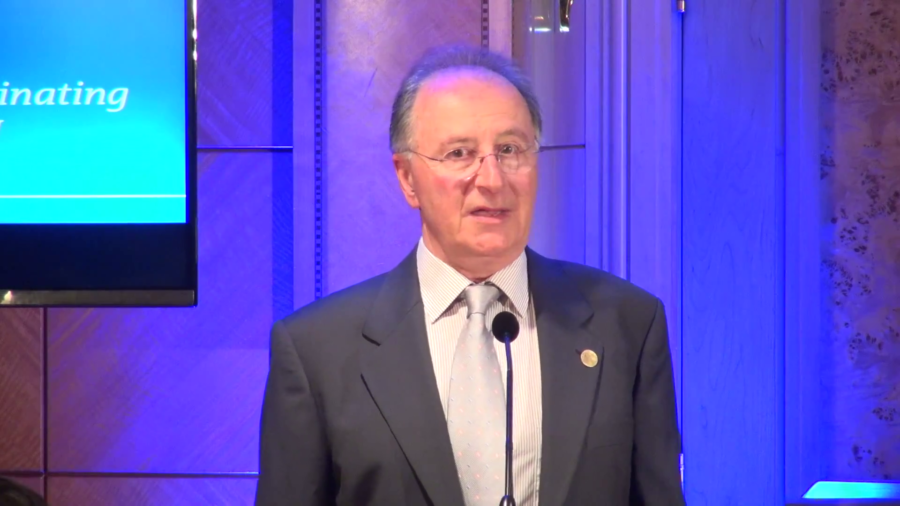Ben Segal: Thanks to everyone. It feels like family. I had some prepared remarks, but actually what Mike just said makes me feel a bit more philosophical. I want to just make a few remarks about mentors and protectors. Most of us here have needed either or both of those. So I want to talk about two people in particular without whom I wouldn’t be here. The first person you know, and the second person you almost surely don’t know.
The first person is Tim Berners-Lee, who when he was being inducted two years ago in Geneva saw me in the audience and went out of his way to recognize me as one of his mentors. This is sort of one of the high points of my career. I was very moved by that.
Tim needed a protector, by the way. His protector was his manager Mike Sendall, who was a wonderful guy. Unfortunately no longer with us; he had leukemia. Mike was the one who wrote on Tim’s first proposal, “Vague, but exciting…” Nobody could foresee what was going to happen in the few years after that; that was 1989.
The second person, who you’ve not heard about, was my boss for around twenty years. And he protected me. He had vision. Like, [?] style, he could see five years ahead and knew how to get there. Why he is an unsung hero, I don’t. His name is Leslie Robertson. He finished his career at CERN recently, having also built the Worldwide LHC Grid, which did all the necessary computing to support the LHC experiments which a couple of ago, over a couple of years, discovered the Higgs Boson.
So without Les, I would not have had the protection necessary to introduce TCP/IP at CERN, which was a very difficult job. And, among family, you know how tough it was. It started in 1984, and believe me a lot of my blood was left on the floor for five years. We had very serious opposition. An unreasonable kind, I think. It still—some of it still hurts.
Anyway, Les, who was a great politician… When I have a dirty trick done to me I tend not to forget that. But Les could smile, carry on with it, and people like me need people like that.
Okay. I’m losing track now. Okay. I should also say I want to thank my family— Apart from the family here I want to thank my own family, who tolerated me many years. I want to thank my son Adam, who’s here, who actually flew me here in his Boeing Triple Seven. And thank you again for the Society and for the nominating committee, or whatever it was that got me here. Thank you.
